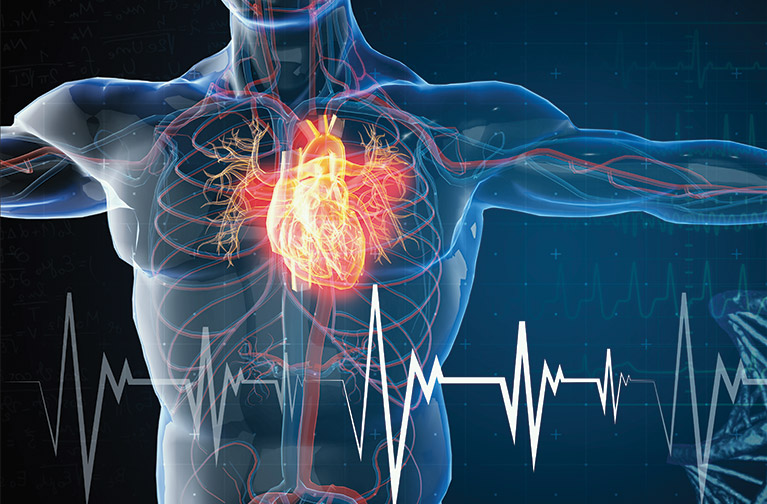By now, you’ve likely heard a lot about the fact that COVID-19 can do lasting damage to the lungs. However, a less understood but just as severe issue is the dangerous and long-term effects COVID-19 can have on your overall cardiovascular health. According to the American Heart Association, doctors across the country are concerned about a potential increase in patients suffering from heart failure, as “many COVID-19 survivors experience some type of heart damage, even if they didn’t have underlying heart disease and weren’t sick enough to be hospitalized.”
There are many ways that COVID can affect the heart. COVID-19 causes inflammation in the whole body. According to Johns Hopkins, the inflammatory process can damage healthy tissues, including the heart, while the body’s immune system fights off the virus. It can also damage the inside of veins and arteries, causing inflamed blood vessels and in some cases, blood clots. This damage affects the way blood flows to the heart, leading to further complications.
According to the Mayo Clinic, “COVID-19 can make blood cells more likely to clump up and form clots. While large clots can cause heart attacks and strokes, much of the heart damage caused by COVID-19 is believed to stem from very small clots that block tiny blood vessels (capillaries) in the heart muscle.” Additionally, blood clots can cause damage to other parts of the body, including the lungs, legs, liver, and kidneys.
Approximately 40% of COVID-related deaths have been due to cardiac issues, according to the American Heart Association in the same article. Of course, the risk of increased heart issues is even higher for people with pre-existing heart disease. Patients recovering from COVID-19 should be aware of symptoms related to cardio issues— extreme shortness of breath with exertion, chest pain, swollen extremities, heart palpitations, lightheadedness, or dizziness can all be signs of heart issues. If you are feeling any of these symptoms, go to the emergency room or consult your doctor right away. In the future, cardiac screenings may become standard routine for patients that have had COVID-19 in the past.
Healthpointe offers a range of evaluations for various lingering symptoms of long-haul COVID. These can include evaluations for shortness of breath, weakness and fatigue, pain, abnormal sensations, and loss of smell or taste. Our innovative COVID Recovery Program features the expertise of multiple medical professionals from a wide-range of fields, including, but not limited to, board-certified cardiologists, neurologists, pain management physicians, ENT physicians, physical therapists, chiropractors, psychologists, orthopedic surgeons, and physicians trained in both general and internal medicine. At Healthpointe, your treatment will be customized to meet your specific needs, one day at a time.
If you are ready to receive treatment for your COVID-19 symptoms, you can call (800) 956-2663 or schedule an appointment here. Find out more about Healthpointe here.
